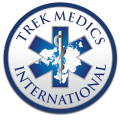AT-A-GLANCE
DIAL 912 TO CALL AN AMBULANCE IN GUYANA
- EMS system began in the capital city, Georgetown, in Nov. 2016
- EMTs are trained to the US EMT-B standards outlined by the NREMT but are often under-equipped and operate with little oversight
- Ambulance service only operates in and around Georgetown, the remainder of the country has no organized ambulance service and relies on police, taxi, and civilian transport to local hospitals in an emergency.
- Crime and road safety are concerns so knowing how to stay safe and manage self in case of an emergency is very important
Special thanks to Mark O’Brien for putting this page together.
HOW CAN I CALL AN AMBULANCE IN GUYANA?
DIAL 912 TO CALL AN AMBULANCE IN GUYANA
912 is the emergency number to reach the Guyana Fire Service and EMS Program where trained dispatchers will determine the nature of the call and then dispatch the proper response unit.
The 912 service applies only to the capital city of Georgetown and its neighboring communities in Region 4 going up the East Coast to the village of Mon Repos and down the East Bank to the area around Agricola and the Demerara Harbor Bridge. This area is geographically small but accounts for approximately 25% of the population in Guyana. Plans are in place to expand throughout the rest of region 4 which would then cover about 30% of the total population.
In areas without access to EMS coverage, medical transport can be arranged by contacting local health centers or regional hospitals which have their own Ministry of Health transport options ranging from ambulances (usually unstaffed and without equipment), Land Cruisers, or medical evacuation (MedEvac) flights depending upon your location in Guyana.
- Guyana Police Service: 911
- Georgetown Public Hospital Dispatch/Transport Service Switchboard: 227-8204 and 227-8210
- Can give advice on how to contact local hospitals outside of 912 coverage areas as well as to arrange transport between regional hospitals to GPHC using unstaffed ambulance though the facility they are transporting from should provide nurse or doctor to accompany patient
- There are currently no private ambulance companies in Guyana
- In a disaster 912 (Fire/EMS) or 911 (Police) can be contacted to provide support.
- The Civil Defense Commission of Guyana (CDC) is in charge of National Emergencies/Disasters and will provide updates to the public and to responding agencies as needed
EMTs working for the Guyana Firse Service and EMS Program are trained at an EMT-Basic level with standards and a curriculum matching those of the US National Registry of EMTs. All EMTs are American Heart Association (AHA) certified in Basic Life Support (BLS). Because the program is often under-equipped, it functions more in an advanced first aid capacity.
As per first-hand observations from 2016-2017:
- Approximately 25% of the Fire Service personnel are trained to the EMT-Basic level, though infrequently work on the ambulance or provide patient care
- Approximately 10% of the Police Service are trained as first responders but lack any medical supplies in their vehicles and will often just load a patient into a police vehicle and transport with no management of the patient
- Guyana Fire Service Dispatchers have been trained as Emergency Medical Dispatchers although enforcement of protocols is not often certain
Read more: “31 more EMTs to boost country’s response service” – Kaieteur News (Apr. 6, 2017)
- Guyana EMS transport will be provided in equipped ambulances with teams of two to four EMTs
- Ambulances are fully basic life support (BLS) and trauma equipped including oxygen although supplies and equipment are often lacking due to delays in acquisition. Currently no medications besides O2 on the ambulance.
- Inter-facility transport is arranged through healthcare facilities and the Ministry of Health
- “There are very few public ambulances. Ambulances generally do not have medical personnel or equipment on board to provide adequate medical care. Generally, ambulance service is limited to transportation and is frequently not available for emergencies. People injured in accidents are often transported by taxi.” [Source: US State Department – Guyana 2016 Crime & Safety Report]
Transport to Public Hospitals – Guyana EMS transports all patients to Georgetown Public Hospital (GPHC), though there are four additional private hospitals with the city of Georgetown.
Transport to Private Hospitals – Currently the public ambulance service will not take patients to private hospitals. Once a patient has been handed over to the ER staff at GPHC they can then request to arrange their own transport to a private hospital. If a patient is in the ambulance and demands to be taken to one of the private hospitals then the patient will be transported there only upon authorization from Medical Director/Chief EMT. None of the private hospitals have their own ambulance services.
Transport outside Georgetown – All 10 regions have a regional hospital as well as smaller secondary or tertiary care hospitals, local health centers and health posts. Outside of principal EMS coverage area (Georgetown) transport is usually arranged via family, bystanders, or police to bring the patient to the closest 24-hour facility.
Basic healthcare is free in Guyana but advanced procedures such as MRI/CT/surgeries will need to be paid for in advance. For critical patients payment will often be delayed until after treatment and persons with financial hardship may have costs partially covered by the government/hospital although this is not guaranteed.
ADDITIONAL INFO
Common Emergencies in Guyana
Vaccinations for Guyana
According to the US Centers for Disease Control and Prevention (CDC), different groups of travelers will require different vaccinations for travel in the Bahamas:
- All Travelers:
- Measles-mumps-rubella (MMR) vaccine
- Diphtheria-tetanus-pertussis vaccine
- Varicella (chickenpox) vaccine
- Polio vaccine
- Your yearly flu shot
- Most Travelers:
- Hepatitis A
- Typhoid
- Yellow Fever
- Some Travelers:
- Hepatitis B
- Rabies
- Malaria
- Zika Virus is a risk in Guyana. Read the Zika Travel Notice for Guyana for more info.
Read more about travel in Guayana at the CDC website: https://wwwnc.cdc.gov/travel/destinations/traveler/none/guyana/ (Last accessed: Oct. 10, 2017)
Emergency medical services (EMS) in Guyana are overseen by the Ministry of Public Health
- “Emergency Medical Services being expanded” Government of Guyana website. Last accessed: Oct. 11, 2017
- “National Emergency Response programme gradually expanding – Medical Director” – Kaieteur News (Apr. 25, 2017) Last accessed: Oct. 16, 2017
- “EMS responded to over 1000 calls since launching” – Kaieteur News (Apr. 4, 2017) Last accessed: Oct. 16, 2017
SCOREBOARD
% of Seriously Injured Transported by Ambulance in Guyana 2013
[Source: 2013 Global Status Report on Road Safety, WHO]
ROAD TRAFFIC INJURY DEATHS
(PER 100,000 POPULATION)
[Source: 2015 Global Status Report on Road Safety, WHO]
REPORTED HOMICIDES
(PER 100,000 POPULATION)
[Source: 2014 Global Status Report on Violence Prevention, WHO-UNDP]




